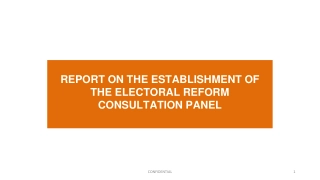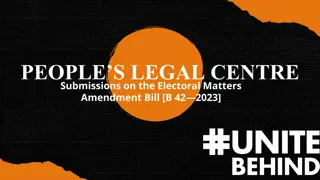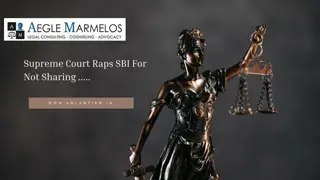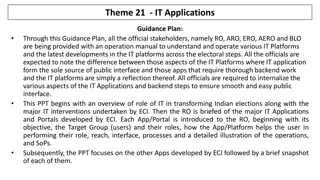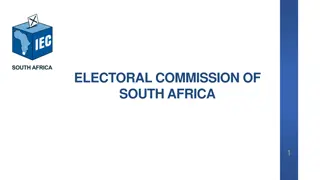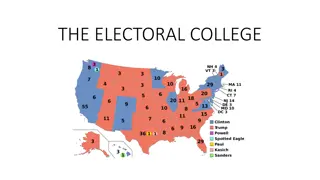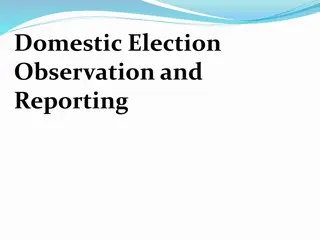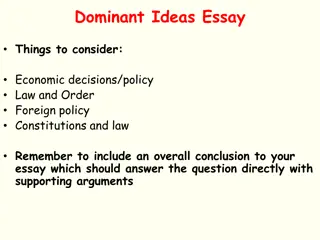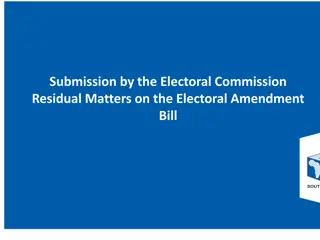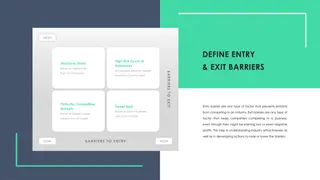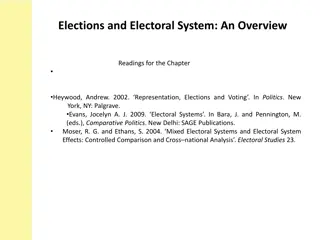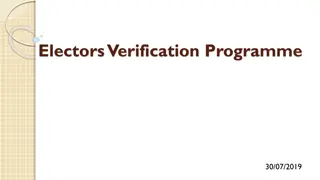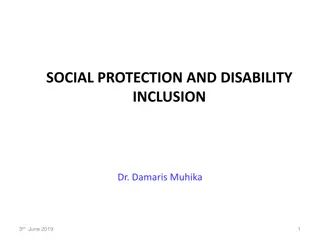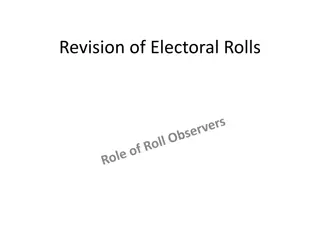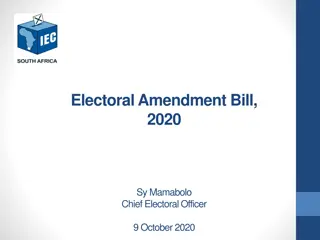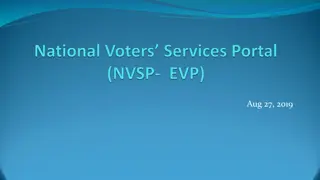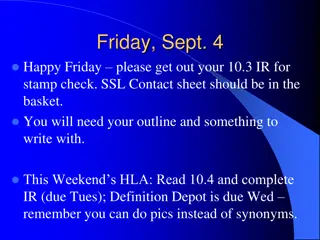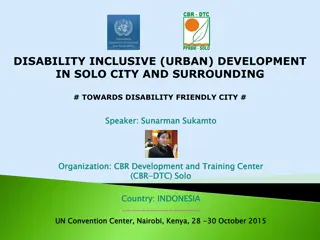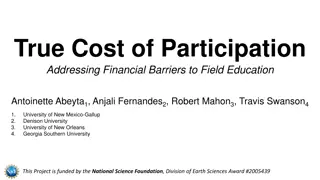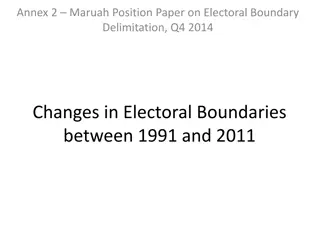Barriers to Electoral Participation of PwDs
Access to electoral participation for Persons with Disabilities (PwDs) is a critical issue that requires attention. This article explores the nature and extent of barriers faced by PwDs in exercising their political rights, highlighting legal provisions and implementation strategies to enhance accessibility. With a focus on Bhutan's electoral system, challenges such as lack of facilities in public buildings, inhospitable terrain, and poor road connectivity are discussed, alongside efforts to improve accessibility through mobile polling booths and registration drives.
Download Presentation

Please find below an Image/Link to download the presentation.
The content on the website is provided AS IS for your information and personal use only. It may not be sold, licensed, or shared on other websites without obtaining consent from the author.If you encounter any issues during the download, it is possible that the publisher has removed the file from their server.
You are allowed to download the files provided on this website for personal or commercial use, subject to the condition that they are used lawfully. All files are the property of their respective owners.
The content on the website is provided AS IS for your information and personal use only. It may not be sold, licensed, or shared on other websites without obtaining consent from the author.
E N D
Presentation Transcript
Nature and extend of barriers to accessibility in electoral participation of PwDs January 2018
We have a moral duty to remove the barriers to participation, and to invest sufficient funding and expertise to unlock the vast potential of people with disabilities. by Stephen Hawking
Article 29 CRPD States Parties shall guarantee to persons with disabilities political rights and the opportunity to enjoy them on an equal basis with others
Legal Provision Section 323 of Election Act of Kingdom of Bhutan, Election Officer shall provide all necessary assistance to the physically challenged, such as the blind, physically handicapped, illiterate, or those living in remote areas to enable them to exercise their right to vote effectively.
Implementation of Section 323 of the Election Act 3. Voter Awareness 1. Physical Assistance Responsibility Responsibility of Election of Election Officers Officers 2. Preferential Access 4. Special Considerations
Background Discussion at all level on PwDs Policies on PwDs formulate Bhutan a late entry to the institution of voting and democracy Advantage - Act, Rules and Regulations and Guidelines Population - 7, 50,000 Little over 400, 000 voters Still faces challenges
PS - schools, hospital, govt. buildings without facilities Inhospitable geographic terrain of the country Polling Station Accessibility Home not friendly Road connectivity No house connectivity
Mobile PB delivered to Pwds, hospital patients and prisoners Positive PwDs will make their choice Intervention Registration drive in full swing Temporary measures hope soon time will come they proudly participate without external assistance
Recently collected data Registere % of Registere Male Female Total d Not Not Registered Total voter d &Voted Voted turnout 911 2083 1708 3791 1804 1101 3816 66.5%
Superstition belief - impairment is a karmic consequence of the person s past life Negative attitudes - biggest challenge Social stigma - avoid embarrassment Discrimination/ Attitudinal Barriers Ostracized from the social and community engagement - barrier in everyday life
1. Advocacies ECB, CSOs and govt. agencies 2. Royal patronage of ABS - making a strong presence 4. Inclusion of PwDs plan - 12th FYP Intervention 3. Govt s initiatives for policy on disability
Awareness PwD focused awareness as of now are not carried out fully Lack of capacity and low and scattered population of PwDs Communication barrier visual, physical, intellectual, hearing and speech impairment Disabled People Organizations are new and lack the ability
Intervention Reaching out to PwDs is a tough task
Conclusion-Political participation is the cornerstone of democracy
NOTE: Studies show that people with disabilities are interested in government and public affairs and want to participate in the democratic process. But because they are often locked out of the polling stations they stay home on election day
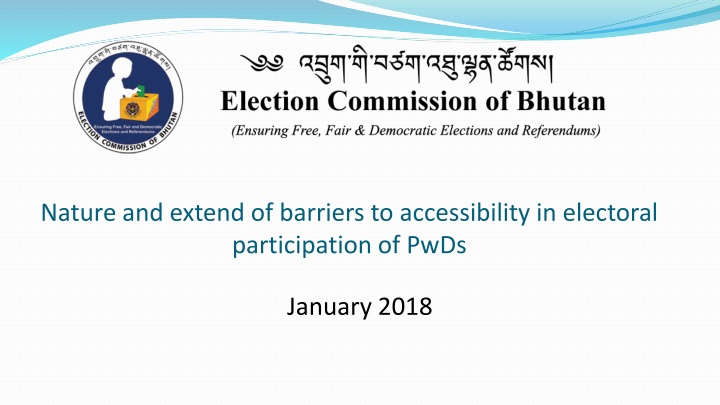

![RE: ELECTORAL MATTERS AMENDMENT BILL [ B42-2023]](/thumb/18837/re-electoral-matters-amendment-bill-b42-2023.jpg)
